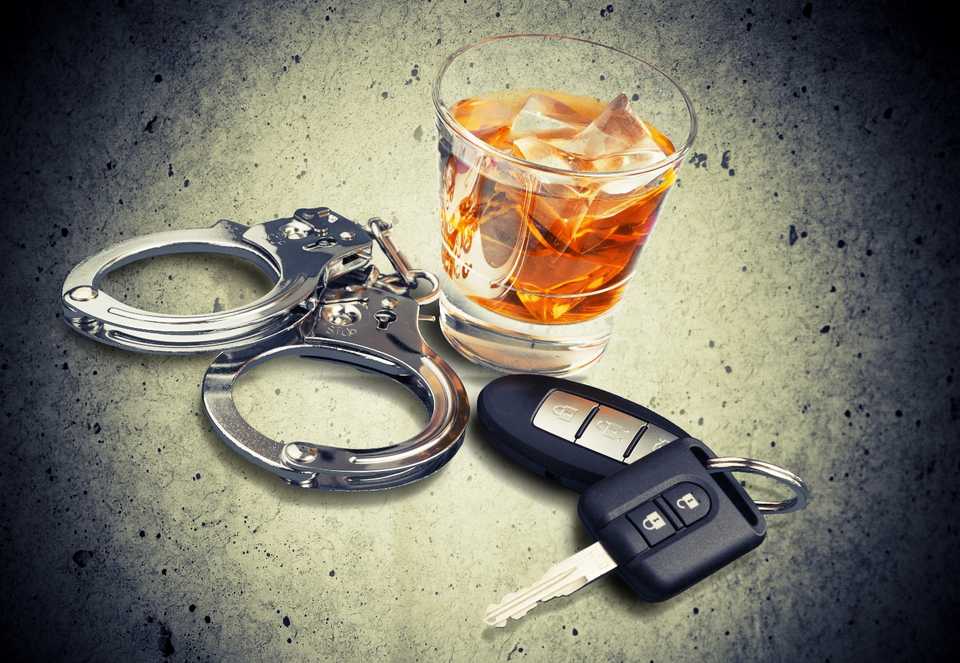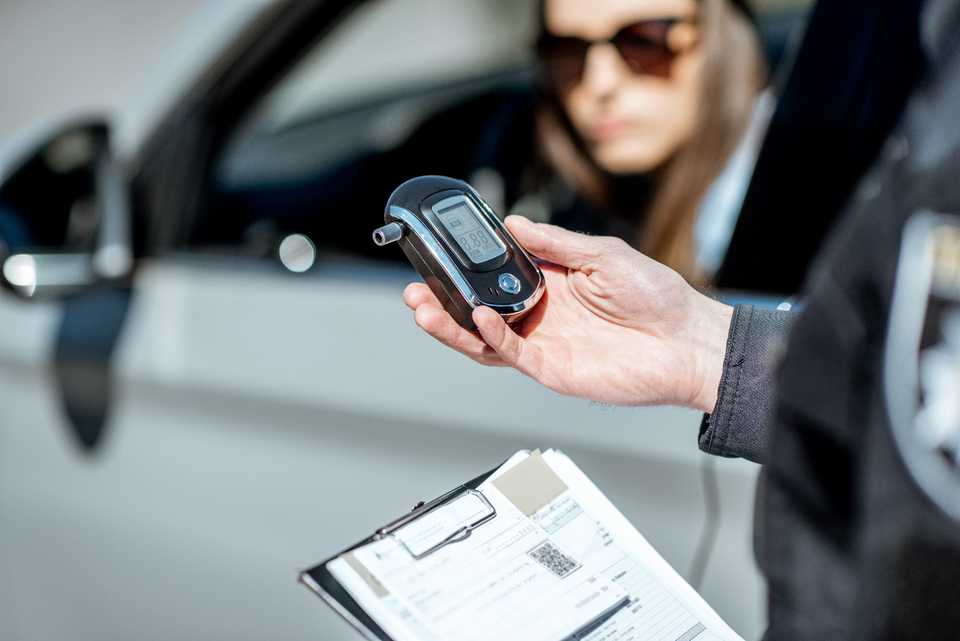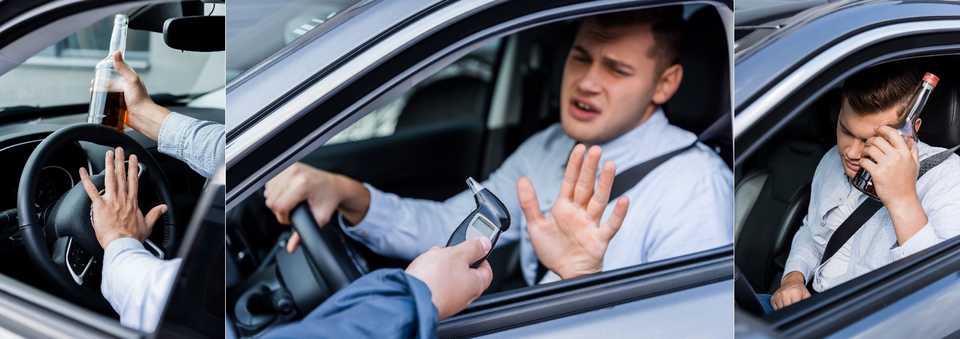Are you or a family member facing a DUI (driving under the influence) or impaired driving charges?
A DUI charge, whether for excess alcohol in the blood or drugs, can be a serious charge that can result in life-long consequences for you. You need the best lawyer to defend you so you can be found not guilty!

Many people know that when charged with DUI, pleading guilty will mean financial losses that can be debilitating.A conviction will also affect your ability to work or travel.
Do not despair if you are facing a DUI charge. JURIGO has over 700 experienced lawyers who can help you!
Fill out the short online form on this page to get connected to the right DUI lawyer, free of charge.
What are impaired driving charges in Ontario?
Some people mistakenly think that an impaired driving charge is a minor problem. Perhaps, this is because it is one of the most common offenses in Ontario.
In truth, driving while intoxicated, drunk driving, impaired driving, or driving under the influence is a serious criminal offense. It can involve the loss of life, or property damage and is given harsh penalties under the Criminal Code.

Even if you were not actually driving a vehicle while impaired, you can still be charged with a care and control charge or an over 80 charge. Being in a vehicle while impaired can be sufficient to get convicted with a DUI charge.
What are the charges under impaired driving?
CARE & CONTROL
Being drunk while in the driver’s seat of any vehicle can lead to a charge of impaired care and control. This is whether your vehicle was in motion or not. The police will conclude that you can set the car in motion because you are in the driver’s seat.
Section 253 of the Criminal Code states that a person with a blood-alcohol level of more than 80 mg per deciliter is driving while under the influence if these circumstances are present:
- The person assisted in the operation or control & care of an aircraft, a vessel, a motor vehicle, or a railway equipment;
- The person operates a vessel, motor vehicle, aircraft, or railway equipment;
- The vehicle involved may be in motion or stationary (not moving).
While you could argue that you parked and had no intention to drive the vehicle while impaired, it could be challenging to prove.
How to avoid a care and control charge? If you are under the influence, get out of your vehicle. You can also designate a sober driver.
If you are charged with care and control, you must hire a reputable DUI lawyer to protect you from the legal consequences of the case.
What are the consequences of a care and control charge? A convicted individual can be fined, given jail time, get his license suspended, and be required to enroll in a treatment program. Further, the convicted person will have a criminal record.
Do you need a DUI lawyer in Ontario? Fill out the form on this page to get FREE and NO OBLIGATION quotes from our partner DUI criminal lawyers.
DANGEROUS OPERATION
An impaired driver can be charged with Dangerous Operation under section 249 of the Criminal Code.
This charge means the driver was operating a vehicle in a manner that poses a danger to the general public and is a criminal offense. It is different from careless driving which is a highway traffic offense.
A conviction for dangerous operation will mean 6 demerit points on your record for 2 years. It would also mean a driving prohibition, serious implications to your insurance, and a fine of $1,000.
If you are not a permanent resident in Canada such as being on a student visa, you will also get deported for a Dangerous Operation conviction.
Judges will interpret situations differently for careless driving or dangerous operation. Hiring an experienced and reputable lawyer can help you defend this charge and avoid serious legal consequences.
DRIVING UNDER THE INFLUENCE
A driver can be charged with driving under the influence (DUI) if a police officer believes that the driver is not able to drive safely due to drugs or alcohol.
Erratic driving, unsteady gait, slurred speech, delayed reaction to traffic signs, bloodshot eyes, or a lack of motor coordination can prove that the driver is impaired by alcohol or drugs.
However, the police will still need to prove that the accused had been drinking. Typically, they must show evidence of poor or dangerous driving due to alcohol consumption.
If you are arrested for driving under the influence, it does not automatically follow that you are guilty. You have the right to a proper defense by speaking to a lawyer of your choice who can find ways to get your charges dismissed.
OVER 80 MG
This is a technical charge compared with an impaired driving charge. Oftentimes, it is defended by lawyers using constitutional rights violations or mistakes by the police which are referred to as technicalities.

The Crown must prove the over 80 mg blood alcohol content during driving , not at the time the test was conducted. It is not simple because alcohol content increases as it moves from the stomach to the blood and decreases when alcohol is metabolized.
Thus, it is almost impossible to calculate the exact blood alcohol content while the individual was driving based on breathalyzer tests an hour after the incident.
A reliable DUI lawyer from our network can help you to defend this charge . Many over 80 mg charges in Ontario are acquitted with a good DUI lawyer.
REFUSE SAMPLE
A police officer can charge you with Refuse Sample if you fail to provide a breath sample when asked. It can be a roadside screening device or another instrument.
An approved screening device is used by police officers doing roadside checks for sobriety. It will show a “fail” result if you have more than 100mg of alcohol per 100 ml of blood to be sure that you are over 80 mg.
But when can a police officer ask a driver to give a breath sample?
A police officer can request a driver for a breath sample with mere suspicion that a driver is under the influence. They can ask if you have been drinking or if you smell of alcohol. Without an admission or the smell of alcohol, the request for a sample could be unlawful and your refusal to provide could not be considered an offense.
A good DUI lawyer from JURIGO would know how to defend you well against this type of charge. The most common defense strategies are based on language or other issues that prevent proper understanding, breach of rights to counsel, or lack of probable grounds for a demand for a sample.
Don’t plead guilty without consulting a lawyer from JURIGO!
Under the Canadian Charter of Rights and Freedoms:
- Every person has the right to defend himself in court;
- Every person has the right to be free from unreasonable search or seizure by the police;
- Every person has the right to be heard by a judge within a reasonable period after being charged.
Every person charged with a crime can also find legal representation to defend himself in court. If the rights of an accused are violated, the case can be dismissed.
Would you like to compare the 10 best DUI criminal lawyers in Ontario? Request free quotes from our lawyer partners using our short online form on this page.
The Laws & Penalties for Impaired Driving in Ontario
As mentioned earlier, Canada’s Criminal Code for impaired driving establishes the penalties and fines depending on the offense and charges. Repeat offenders face greater penalties and a longer jail time.

Each province may also have additional laws for impaired driving.
- In Ontario, you are in the “warning” range if you have a blood alcohol content (BAC) of 0.05 to 0.08.
- If your BAC is 0.08 or higher and get a conviction, your penalties will follow the MTO provisions, as follows:
First Conviction
- License suspension for 3 days
- Fine of $250
Second Conviction
- 30 days imprisonment
- 3 year license suspension
- Fines (as determined by the judge)
- Mandatory enrollment in an education program
- A probation period when deemed proper by the judge
Third Conviction
- Mandatory imprisonment of 90 days
- Lifetime License suspension
- Fine as determined by the judge
- Mandatory participation in a treatment program
- A minimum of 6 months’ ignition interlock device
- Required medical evaluation to check if you meet the requirements for driving in Ontario
Refer to the table below to check the charges for drug impaired driving in Ontario (summary conviction) and the penalties.
| Charge | Penalty |
|---|---|
| With over 2 ng but less than 5 ng of THC per ml of blood within 2 hours of driving. | Maximum fine of $1,000 |
| 1st offence: Blood alcohol content of 80-119 ml | Mandatory $1,000 fine (Minimum) |
| 1st offence : Blood alcohol content of 120-159 ml | Mandatory fine of $1500 (Minimum) |
| 1st offence: Blood alcohol content of 160 mg or more | Mandatory fine of $2,000 (Minimum) |
| Impaired driving causing bodily harm | Maximum of 2 years jail time less 1 day. If you are indicted, The penalty is a maximum of 14 years imprisonment. |
| Impaired driving causing death | Maximum penalty of life imprisonment |
Warn-Range Penalties for Drivers
Warn-range penalties are given under the following conditions:
- a Blood Alcohol Concentration (BAC)between 0.05-0.079
- fails the Standard Field Sobriety Test**(alcohol and/or drugs)**
First Offence
- Immediate licence suspension for 3 days
- $250 penalty
Second Offence
- Immediate licence suspension for 7 days
- education or treatment program
- $350 penalty
Third Offence
- Immediate licence suspension for 30 days
- education or treatment program
- Ignition Interlock for six months
- $450 penalty
Penalties upon arrest for impaired driving

Any driver arrested for impaired driving can face the following immediate penalties:
- Vehicle Seizure: The vehicle is seized and towed away. The owner will be responsible for the costs of towing and storage for a minimum of 7 days.
- 90 days’ suspension of licence: Drivers are prohibited from driving any motor vehicle on the roads of Ontario for 90 days. Criminal license suspensions stay on record for 5 years.
- Non-coverage for collision insurance in accidents : In an accident where a collision occurred and the driver is arrested for drinking and driving, the insurer will not pay for the damage.
- Insurance policies state that the driver must not perform any criminal act while in control of the vehicle.
- License reinstatement fee ($281)
It is critical to hire a DUI lawyer to represent you from the moment you get into trouble. Contact JURIGO with our short online form to find the best lawyer for your defense.
The Penalties for young and novice drivers

Ontario has a ZERO TOLERANCE POLICY for young and novice drivers. You cannot have any alcohol or drugs in your system if you:
- Are aged 21 and under
- Possess a G1, G2, M1 or M2 licence (regardless of age)
You will face these penalties like fully-licenced drivers and additional penalties for impairment.
First Offence
- immediate roadside licence suspension for 3 days
- $60-$1000 fine (if convicted)
- $250 penalty
Second Offence
- immediate roadside licence suspension for 7 days
- A fine of $60-$1000 (if convicted)
- education or treatment program
- $350 penalty
Third Offence
- immediate roadside licence suspension for 30 days
- $60-$1000 fine (if convicted)
- education or treatment program
- Ignition Interlock Program for six months
- $450 penalty
Your licence could be suspended for an additional 30 or 90 days, or canceled, depending on your age and the type of driver’s licence, if convicted.
Penalties for impaired driving for commercial vehicle drivers
Any person driving a commercial vehicle cannot have alcohol or drugs in the system.

You will face penalties for impairment like any other licenced driver, possibly along with other penalties. Every time your licence is suspended, you must also pay a licence reinstatement fee.
First offence
- Immediate roadside licence suspension for 3 days
- A fine of $250
Second offence
- Immediate roadside licence suspension for 3 days
- Enrolment in an education or treatment program
- Penalty of $350
Third offence
-
Immediate roadside licence suspension for 3 days
-
Enrolment in an education or treatment program
-
6 months of Ignition interlock condition
-
A fine of $450
Persons convicted of criminal acts also get a criminal record.
The Highway Traffic Act mandates that persons convicted of DUI or impaired driving with 2 or more administrative suspensions must complete the Back on Track Program, the Remedial Measures Program of Ontario**, before their licences can be reinstated**. The participation fee is $894.
What is the Ignition Interlock Program?
This Program is mandatory for drivers who have been:
- Convicted of an impaired driving offence
- Suspended 3 or more times within 10 years for impaired driving offences
To get your licence reinstated, you must successfully complete this program. An Ignition Interlock device is installed in your vehicle which is an alcohol breath screening device inside your car that will prevent the engine from starting if alcohol is detected in your system.
The Ignition Interlock Condition is placed on your driver’s licence and will indicate how long you must remain in the Program.
FAQs on impaired driving charges in Ontario
An impaired driving charge is a serious matter that could have dire consequences .
These consequences include problems with foreign travel, employment, buying a home, getting a loan, or starting a business.
We present below some of the most common FAQs on impaired driving in Ontario to help you plan your defense.

Is impaired driving the same as driving under the influence?
Impaired driving is of two types – drug impairment or alcohol impairment. It is a criminal and indictable offense in Ontario and carries severe penalties. It can be charged to a driver whether the vehicle is moving or not.
DUI is just one of several types of impaired driving with a focus on driving and drinking alcohol. It is based on a breath sample test and not just your ability to drive. A driver is considered to be driving under the influence if his blood alcohol level is over 80 mg per 100 ml of blood.
It is a criminal offense in Ontario to operate a vehicle with a blood alcohol concentration higher than the legal limit within 2 hours since you stopped driving a vehicle.
What are the penalties for DUI in Ontario?
The penalties vary based on your blood alcohol level, whether it is a first offense or not, and if bodily harm or death was caused to another individual.
A first offense has a minimum mandatory penalty of $1,000 in fines and the maximum penalty is imprisonment for 10 years.
If it is a second offense, the minimum penalty is 30 days in jail and the maximum is 10 years of jail time. If it is a third DUI conviction, it will carry a minimum of 120 days in jail and a maximum of 10 years.
For impaired driving that results in physical harm to another person, the penalty can be up to 14 years in jail. If it caused death, the maximum is life imprisonment.
Can a person be convicted of a DUI charge without a blood alcohol content (BAC) test?
Some people think that only a BAC test showing an excess of 80 mg of alcohol per 100 ml of blood can lead to a DUI charge.
The truth is that if the Crown Attorney can prove that the driver was operating a vehicle under an impaired state with drugs or alcohol through observation or with surveillance, the driver can be convicted without a BAC test.
The smell of alcohol, slurred speech, erratic behavior, erratic driving or very slow driving, and other indicators can also be evidence in court.
What happens to car insurance after a DUI conviction?
A DUI conviction will mean higher insurance rates because you are classified as high-risk. Your car insurance premiums will be much higher than usual for many years after your conviction.
Will you have a criminal record for a DUI?
Yes, a DUI offense is considered a criminal offense. Your arrest records and mug shot are public records and can be viewed by potential employers and credit agencies conducting a background check with the Ontario Provincial Police.
How long does a DUI conviction remain on record?
It depends on your previous DUI convictions. A first-time conviction without a suspension of license stays on your record for 3 years. If the license is suspended, it stays on your record for 6 years.
For multiple DUI convictions, it remains on record for an indefinite period. It is possible to apply for a record suspension after the waiting period has lapsed.
What strategies are available for a DUI defense?
DUI offenders can use several strategies for a DUI defense, including:
- No reasonable grounds for the police officer;
- Defective breathalyzer machine;
- Breach of your right to legal counsel
- Alcohol was consumed just before the traffic stop;
- Wrong urine or blood test results
- The police officer did not follow the correct procedures;
- Delayed testing.
What is impaired driving by drugs?
In 2018, parameters for impaired driving were revised to include drugs. A person can be charged with impaired driving by drugs if:
- the amount of cannabis in the blood exceeds 2 nanograms of THC per ml of blood;
- If there is 50 mg of alcohol in the blood per 100 ml of blood and 2.5 nanograms or more of cannabis per ml of blood in the system.
- If there is cocaine, LSD, or other illegal drugs detected in the blood.
How much does a DUI lawyer in Ontario cost?
No exact figure can be given without considering the circumstances of the DUI case as they vary from person to person and on the lawyer you choose to hire. However, the minimum cost of a DUI lawyer in Ontario is around $9,000 to $22,000 for a first-time offender. This amount may or may not include fees such as a $1,000 fine and enrollment in Ontario’s Back on Track program which costs $2,000.
The more complex your DUI is, the more time the lawyer must devote to your defense strategy. Your lawyer fees will greatly depend on the time your lawyer spends on your case.
What is cannabis-related DUI?
While cannabis is legal in Canada, you cannot drive while under the influence of cannabis in the same way that you cannot drive while intoxicated with alcohol.
Canada’s Criminal Code includes cannabis as a drug that is subject to the provisions for operating a vehicle while impaired.
You can be charged with a non-criminal administrative warning if you have from 2 to 5 nanograms of TCH per ml of blood. In excess of 5 nanograms or a combination of 2.5 nanograms and 50 mg of alcohol per 100 ml of blood, you can be charged with a criminal DUI.
Who are the best DUI lawyers in Ontario?
There are over 700 lawyers in JURIGO who can effectively defend your case**. Fill out our form** and compare our lawyer partners to find the right match for your needs.
How to win a DUI case in Ontario
The first step to a solid defense for impaired driving is hiring the right lawyer to defend you. The sooner you get a good DUI lawyer on your side, the higher the chances of success.
JURIGO’s criminal lawyers are all experienced and dedicated to protecting your rights and employing the best strategy for your impaired driving or DUI case to be dropped or charges dismissed.

Our partner lawyers will be happy to discuss the details of your DUI charges with an initial consultation to plan the best possible outcome.
No matter where you are in Ontario, JURIGO lawyers can help you win your case.
Fill out the short online form below to connect with JURIGO DUI LAWYERS with no obligation!